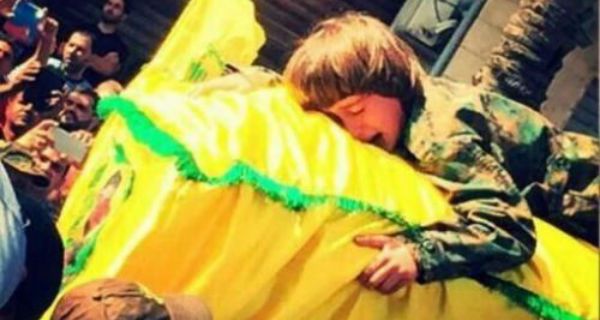Who really killed Hezbollah’s Mustafa Badreddine?
Brooklyn Middleton/Al Arabiya/May 14/16
Senior Hezbollah commander Mustafa Badreddine died in a “huge blast” near Damascus, the militant group confirmed via statement published by their media mouthpiece Al Manar on Friday. Badreddine’s death marks a victory for those affected by his involvement in attacks dating back to the 80s, reportedly including the deadly suicide truck bombing attack that left over 200 US soldiers dead in Beirut in 1983 as well as the bombings targeting the French and US embassies in Kuwait the same year, according to the New York Times. Notably, initial reporting by Al-Mayadeen blamed Israel for the fatal attack, claiming that an Israeli Air Force (IAF) strike successfully targeted Badreddine’s position.
But, curiously, that article was reportedly erased, raising two key questions: Was it simply factually incorrect and did some other party opposed to Hezbollah manage to kill Badreddine, securing an incredible success, or is Hezbollah attempting to distance itself from blaming Israel so that it is not faced with intense pressure to directly retaliate against the country?
The militant group is demonstrating that it remains capable and willing to strike back against whichever party it believes killed Badreddine It is possible that Israel saw a strategic opportunity to hit Badreddine and assessed that the likelihood such an operation would spark broader conflict remained low.
Certainly, the losses Hezbollah has suffered in Syria and the bloodshed it has failed to prevent on its own soil in Lebanon has not put it in a favorable position to engage in direct conflict with Israel at this stage. If the militant group formally and publicly blamed Israel, its supporters would likely intensify calls for a more spectacular attack on Israel than planting an IED on the country’s border.
Remaining quiet
While Israel has predictably remained quiet about its operation or lack thereof, the US formally denied it had any involvement in the attack, with White House Press Secretary Josh Earnest confirming that there were “no United States or coalition aircraft in the area” during the time of Badreddine’s death.
If the Hezbollah commander did not die in an IAF attack and instead was killed by rival fighters on the ground, it would mark a rather humiliating and unremarkable end to a long, murderous career. Hezbollah released a statement in the coming hours indicating that “takfiri groups” were responsible for the explosion which killed the military commander.
Through this statement, the militant group is demonstrating that it remains capable and willing to strike back against whichever party it believes killed Badreddine. Interestingly, Hezbollah MP Nawar al-Saheli’s reportedly blamed Israel for the attack, noting that their culpability was certain and vowing that, “The resistance will carry out its duties at the appropriate time.”
It would be premature to assess Badreddine’s death – despite his status and the loss it represents to the organization – will provoke broader conflict with Israel in the immediate term. According to the statement released by Hezbollah about Badreddine’s death, he himself recently said, “I won’t come back from Syria unless as a martyr or a carrier of the banner of victory.” Ultimately now, the banner of victory is being carried not by Badreddine but by the victims of his deadly attacks.

















